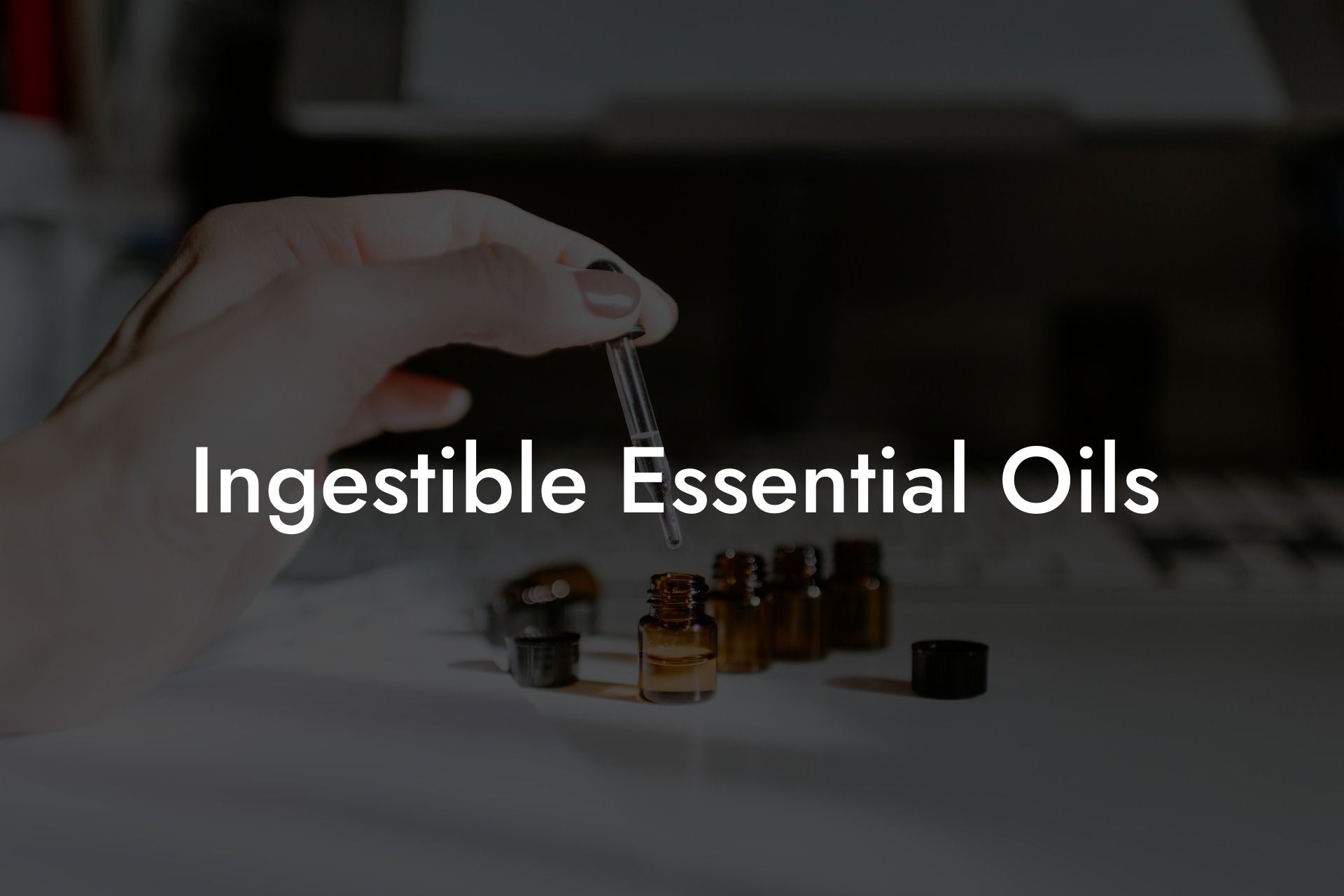In today’s world, many people are turning to natural solutions for their health and wellness. One popular approach is the use of essential oils, which are concentrated plant extracts that possess incredible benefits. While you might have heard of or even tried essential oils for topical or aromatic applications, you may not be aware that some essential oils can also be ingested. In this article, we will explore ingestible essential oils: what they are, their benefits, safety considerations, and how to use them correctly.
Table of Contents
What are ingestible essential oils?
Ingestible essential oils are those oils that are safe for human consumption when used appropriately. These oils are derived from various parts of plants, such as the leaves, flowers, or bark, and contain powerful therapeutic compounds. Not all essential oils are suitable for ingestion; in fact, many should be avoided as they can be toxic or have negative side effects. Therefore, it’s crucial to select oils approved for internal use and always follow recommended guidelines.
Benefits of ingestible essential oils
Using essential oils internally can provide a plethora of benefits for your mind, body, and overall wellbeing. Some of these benefits include:
- Supporting the immune system
- Aiding digestion and gastrointestinal health
- Boosting energy levels and mood
- Anti-inflammatory effects
- Reducing anxiety and stress
It’s important to note that every essential oil has unique properties and benefits, so it’s crucial to understand the specific oils you’re using before integrating them into your health regimen.
Safety and Guidelines for Ingestible Essential Oils
Before using essential oils for ingestion, you must consider the following safety guidelines:
- Choose high-quality, pure essential oils. Ensure they are labeled as ingestible or deemed Generally Recognized as Safe (GRAS) by the FDA.
- Consult a healthcare professional, aromatherapist, or aromacologist before starting internal use, particularly if you have a pre-existing condition, are pregnant, or nursing.
- Follow proper dosage recommendations, as excessive consumption can cause side effects such as stomach discomfort or even toxicity.
- Never give ingestible essential oils to children without guidance from a qualified professional.
How to Use Ingestible Essential Oils
There are several ways to take essential oils internally, including:
- Adding a drop or two to food or beverages
- Taking essential oil capsules
- Adding a few drops to a glass of water, always with a dispersant such as honey or a carrier oil to avoid irritation
- Swishing essential oils in the mouth which then get ingested gradually over time, commonly used for oral health issues
Ingestible Essential Oils Example:
For example, suppose you want to incorporate ingestible essential oils into your daily routine to support digestion. In that case, you might choose peppermint oil, recognized for its ability to soothe digestive discomfort and improve overall gastrointestinal function. Following proper guidelines and consulting with a healthcare professional, you could add one drop of peppermint oil to a glass of water each morning, taking care to blend well and include honey or a carrier oil to avoid irritation. Over time, you may notice improvements in your digestion, reduction of bloating, and increased energy levels.
Ingestible essential oils offer an effective and natural way to enhance your health, wellness, and overall quality of life. However, it’s essential to educate yourself on proper use and safety before embarking on your ingestible essential oil journey. We encourage you to share this article with friends and family members interested in exploring the world of ingestible essential oils, and be sure to check out our other Oshu Oils guides and high-quality essential oil products to help you live your best, most balanced life.





















